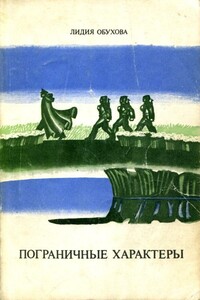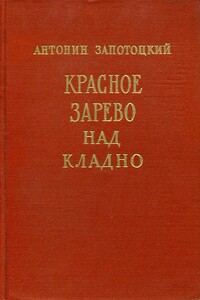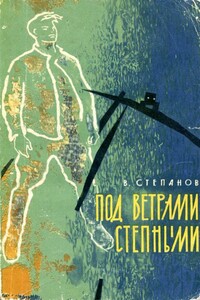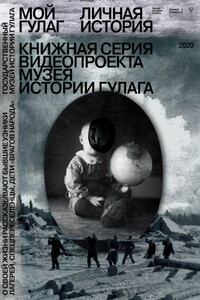The Boy Scouts In Russia - [20]
"Absolutely sure," Fred answered. "Do you want the exact location of the house used as headquarters? I can describe it for you if you have the village shown on your map."
"Yes. Give it to me," came the answer.
Before he finished his wireless talk, Fred felt that the Russian operator did not fully trust him. Nor did he blame him. He knew the excellence of the German spy system; he had heard a good deal about it from Boris, and, for that matter, before he had even seen Boris at all. So he only laughed, though he hoped that this feeling would not prevent the Russians from using the information he had given. He could not see just how it was to be useful to them, however. Possibly the fact that von Hindenburg was here, and not to the south, was the important thing.
By this time it was growing dark, and Fred decided that it would soon be safe to try to throw the cord up to Boris's window-as safe, at least, as it would ever be. He got a bundle of clothes from Vladimir, and this time he determined to travel through the tunnel, since he knew that if he went by the outside route he would have trouble in getting through the sentries. Luck was with him again. He was nervous as he opened the door and came out into the night, but there was no one about. At a little distance he could hear steady footsteps; evidently a sentry was walking his beat near by. But Fred's scout training had taught him how to move quietly and he slipped through the gully and toward the house without raising an alarm.
Once he was on the right side of the house, he found shelter in a clump of bushes, where, unseen himself, he could study the situation. His first thought was of the house. He soon found the window of Boris's room. Immediately below it were the windows of corresponding rooms, and one of these was lighted. This made him pause at once. For the rope to be drawn up, or for Boris to show himself before that lighted window for even the moment of a swift descent, might well be fatal. That was one point, but he speedily devised a way of overcoming that.
There was another danger to be considered, and it took him longer to calculate this. Naturally there was a patrol about the house. Fred himself had had to avoid the sentry, making his steady round. Now he lay in the bushes and timed the man's appearances for nearly half an hour. There were two men, as a matter of fact, and they met on each circling of the house. Fortunately, their meeting came at the very end of the garden. So Fred was able to work out a sort of mental chart of their movements, and to confirm it by timing them. The two sentries met on his side of the house at the eastern end. The first walked west, the second north. The one who walked west had his back to Fred and to the window where Boris waited for a minute. Then he, too, turned north. Then came a blessed interval of just a minute, in which neither sentry was in sight. Altogether, there was a period of almost two minutes in which no eye would be fixed on Boris's window, unless the sentry chanced to turn and look back.
To make sure, Fred studied both men. And not once did either of them look back or up. Their attention did not seem to centre on the house at all. It was as if their instructions were more to prevent a surprise attack from outside, or the coming of some spy, than to watch those who were already in the house.
Once he had made up his mind, Fred buried himself deeper in the shrubbery and risked using his pocket flashlight while he wrote a note to Boris, telling him what he had learned of the movements of the sentries. He told Boris, also, not to draw up the rope at once, but to climb from his window to the flat roof, something easy enough to manage, and then to move along five paces. There the rope, when it was drawn up, would be invisible against the grey stone of the house wall, whereas, against a lighted window, it would show up so plainly that the most stupid sentry would be sure to see it.
Fred had substituted a tennis ball for the stone he had originally intended to throw. The ball had many advantages. In case his aim was bad, the ball would not make a noise if it fell or if it struck against the wall, while the sound of a stone would have betrayed them had he failed to put it through the window. Now he tied his note to the ball, making it firm and secure with the end of a ball of twine. About his body he had coiled a long, very thin, very strong rope. After Boris had the end of the cord he would fasten the rope to his end, and so enable Boris to draw it up. And to guard against losing the end of the cord, he tied it to his own left wrist.
He waited for the sentries to meet; gave the one who stayed on his side a start, and then, taking careful aim, threw his ball. At home Fred had played baseball. More than once a game had depended on the accuracy of his toss of a hot grounder to the first baseman. In basketball games, he had stood, with the score tied, to shoot for the basket on a foul, when the outcome was to be settled by the accuracy of his throw. But never had he been as nervous as he was now. The ball flew straight and true, however. He saw it enter the window. And the next moment a tug on his wrist told him that Boris had it.

В настоящем издании впервые полностью публикуются воспоминания барона Андрея Ивановича Дельвига (1813–1887), инженер-генерала, технического руководителя и организатора строительства многих крупных инженерных сооружений на территории Российской империи. Его воспоминания – это обстоятельный и непредвзятый рассказ о жизни русского общества, в основном столичного и провинциального служилого дворянства, в 1810–1870-х годах. Отечественная война, Заграничный поход, декабрьское восстание 1825 года вошли в жизнь А.

Документальные повести Л. Обуховой многоплановы: это и взволнованный рассказ о героизме советских пограничников, принявших на себя удар гитлеровцев в первый день войны на берегах Западного Буга, реки Прут, и авторские раздумья о природе самого подвига. С особой любовью и теплотой рассказано о молодых воинах границы, кому в наши дни выпала высокая честь стоять на страже рубежей своей Отчизны. Книга рассчитана на широкий круг читателей.

В книге рассказывается история главного героя, который сталкивается с различными проблемами и препятствиями на протяжении всего своего путешествия. По пути он встречает множество второстепенных персонажей, которые играют важные роли в истории. Благодаря опыту главного героя книга исследует такие темы, как любовь, потеря, надежда и стойкость. По мере того, как главный герой преодолевает свои трудности, он усваивает ценные уроки жизни и растет как личность.

В книге рассказывается история главного героя, который сталкивается с различными проблемами и препятствиями на протяжении всего своего путешествия. По пути он встречает множество второстепенных персонажей, которые играют важные роли в истории. Благодаря опыту главного героя книга исследует такие темы, как любовь, потеря, надежда и стойкость. По мере того, как главный герой преодолевает свои трудности, он усваивает ценные уроки жизни и растет как личность.

В книге рассказывается история главного героя, который сталкивается с различными проблемами и препятствиями на протяжении всего своего путешествия. По пути он встречает множество второстепенных персонажей, которые играют важные роли в истории. Благодаря опыту главного героя книга исследует такие темы, как любовь, потеря, надежда и стойкость. По мере того, как главный герой преодолевает свои трудности, он усваивает ценные уроки жизни и растет как личность.

«Мой ГУЛАГ» — это книжная серия видеопроекта Музея истории ГУЛАГа. В первую книгу вошли живые свидетельства переживших систему ГУЛАГа и массовые репрессии. Это воспоминания бывших узников советских лагерей (каторжан, узников исправительно-трудовых и особых лагерей), представителей депортированных народов, тех, кто родился в лагере и первые годы жизни провел в детском бараке или после ареста родителей был отправлен в детские дома «особого режима» и всю жизнь прожил с клеймом сына или дочери «врага народа». Видеопроект существует в музее с 2013 года.